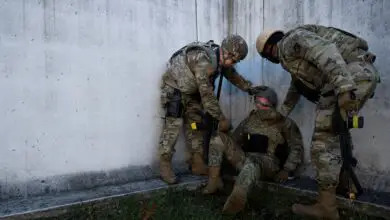
Could the news get graver for our veterans with brain injuries?
A study just published by the journal PLOS One reveals grim truths about how members of our military suffer from brain injuries they received during service. Pre-mature cognitive decline in young veterans with concussions, also known as mild traumatic brain injuries (mTBI), may lead to a host of other problems down the road.
This study reveals that mTBI is, among other things, a gateway to Parkinson’s Disease.
Brain Injury and Parkinson’s Disease
The PLOS One study is unique because it explored cognitive domains that would have been overlooked in a typical clinical setting. The big news: veterans with mTBI have a 56 percent increased risk of developing idiopathic Parkinson’s Disease within 12 years post-injury.
The afflicted veterans who participated in this study “performed more like older, early-stage Parkinson’s disease subjects and presented cognitively as if they were at least three decades older on tests of cognitive flexibility, attention, processing speed and inhibitory control.”
That’s right, let that sink in; many of our veterans and servicepersons are prime candidates for Parkinson’s, a disorder of the central nervous system that affects movement and often includes tremors.

Concussions are more than a passing rattling of the head for some soldiers. Many of our veterans from Operation Freedom, Operation Iraqi Freedom, and Operation New Dawn just can’t shake off mild traumatic brain injury.
Their injuries are more severe than most of us can understand, and the number of troops suffering is a difficult one to grasp: 82 percent of the 430,000 head injuries among servicepersons reported from 2000 to 2018 were classified as non-penetrating mTBI. With numbers that high, the increased possibility of Parkinson’s Disease escalates significantly.
Urgency
I respect and applaud the work the government is already doing to address mTBI among servicepersons and veterans.
There is growing awareness among members of Congress about the severity of the problem and research is ongoing thanks to funds already appropriated. The National Defense Authorization Act for 2022 also directs increased funding for brain injury research and treatment.
Nevertheless, the federal government has to move with an even greater sense of urgency given the worsening news about mTBI and its impact on the military.
As a nation, it is a moral imperative for us to address this epidemic with immediacy for those who served, are currently serving, and will serve in the future.
As a pragmatic matter, it’s essential to find treatments for brain injury; the costs are enormous. The median annual costs for a veteran diagnosed with mTBI in 2015 were $5,831 compared to $1,547 for veterans without mTBI.
Only the federal government has the power to unite disparate parties and declare war on brain injury. The talent needed to find a treatment for mTBI is available in the US, but greater coordination and financial resources are required to expedite the process.
I am confident we are closer to a treatment, but the mighty resolve of the US government can do wonders to speed the process of bringing better health and peace of mind to our troops and veterans.
 Michael Wyand, DVM, PhD, is a biopharmaceutical executive with over 25 years of experience in managing and building successful product and service oriented life science companies. He is the CEO of Oxeia Biopharmaceuticals. Oxeia is conducting Phase 2 human clinical studies for its therapeutic drug, OXE-103, to treat concussions.
Michael Wyand, DVM, PhD, is a biopharmaceutical executive with over 25 years of experience in managing and building successful product and service oriented life science companies. He is the CEO of Oxeia Biopharmaceuticals. Oxeia is conducting Phase 2 human clinical studies for its therapeutic drug, OXE-103, to treat concussions.
The views and opinions expressed here are those of the author and do not necessarily reflect the editorial position of The Defense Post.
The Defense Post aims to publish a wide range of high-quality opinion and analysis from a diverse array of people – do you want to send us yours? Click here to submit an op-ed.










